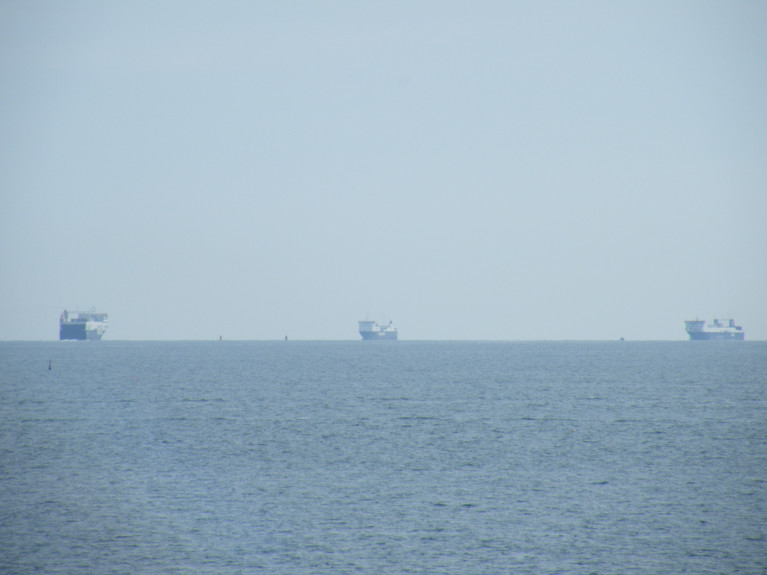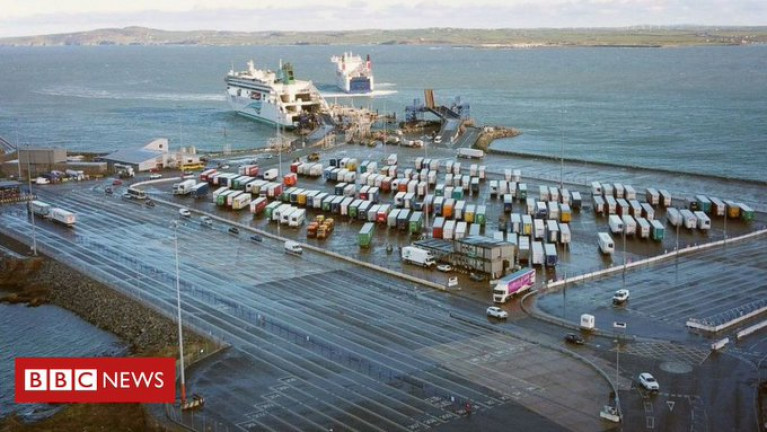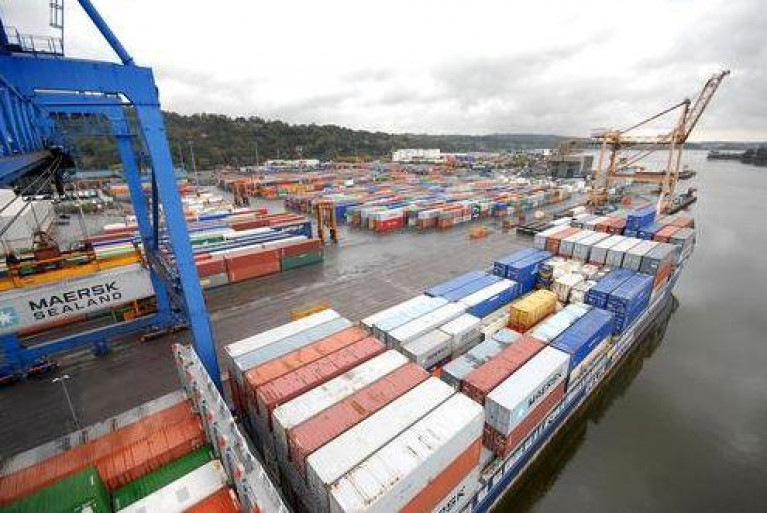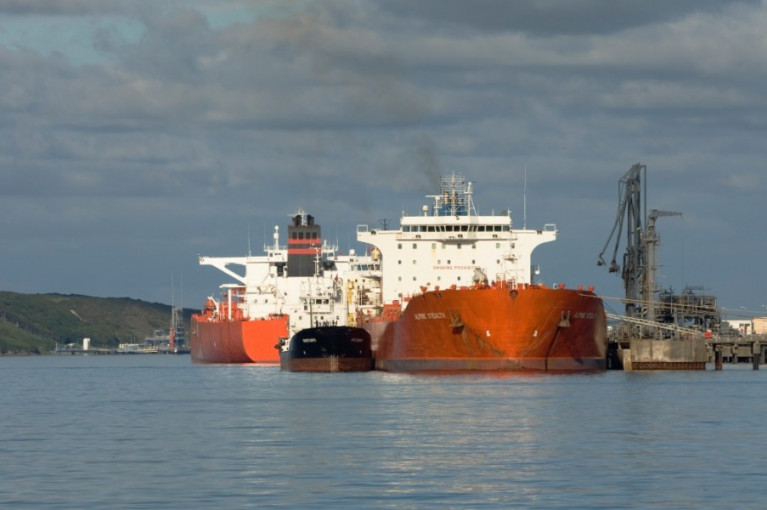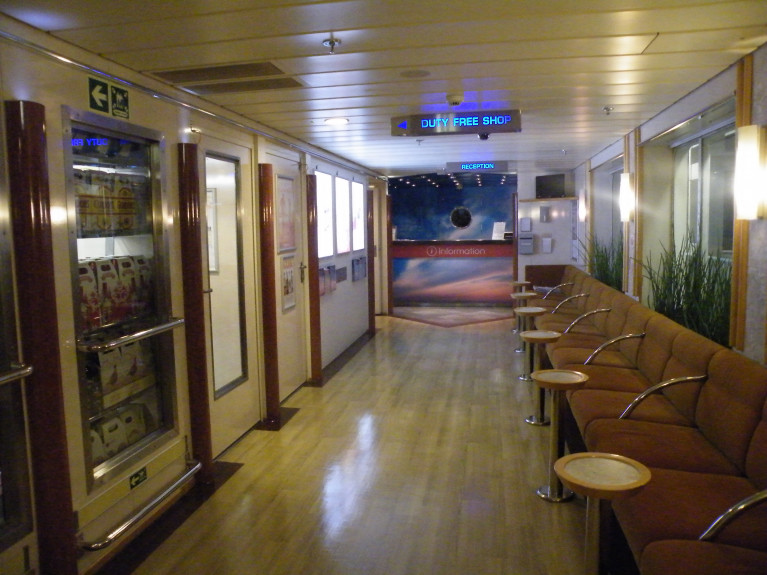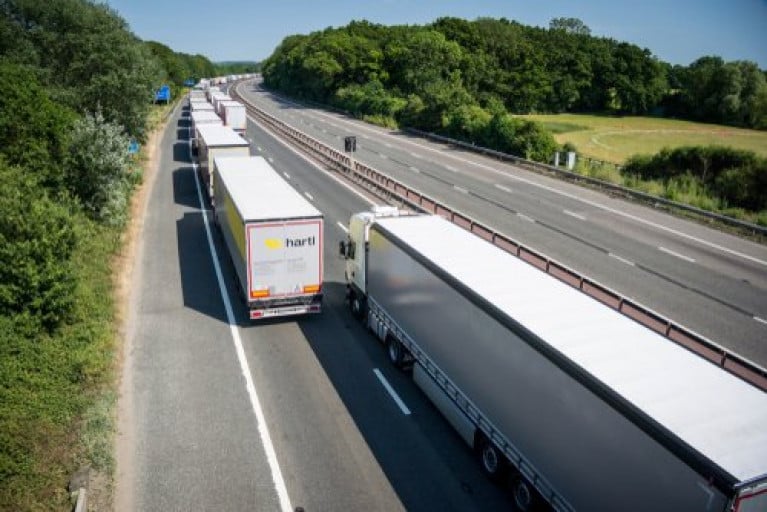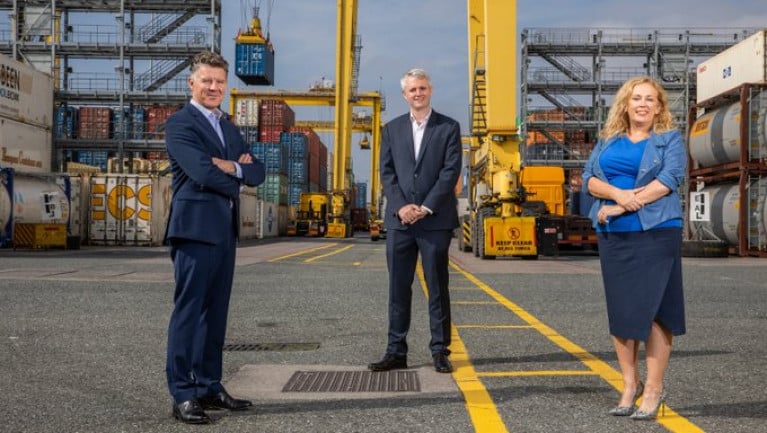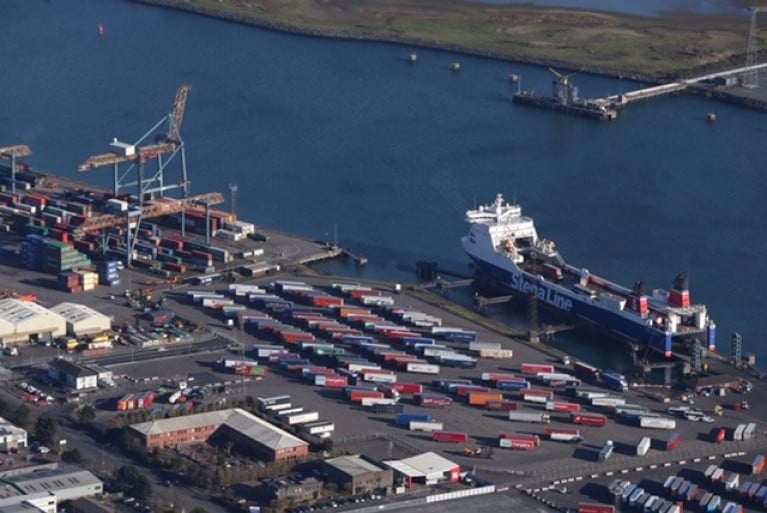Displaying items by tag: PostBrexit
Port of Dunkirk Examines Potential New Routes after 'Push' Pivots French Port towards Ireland Due to Brexit
In the most northern port in France, Dunkirk (ranked 7th port in the Northern Range between Le Havre and Hamburg), is where the French port company is looking to mount a significant expansion of trade routes with its Irish counterparts, as the port sees Ireland as an “underestimated” market even post-Brexit.
The Port of Dunkirk's deputy chief executive said it was eyeing stronger links with existing trade routes through Dublin Port and Rosslare Europort, while also creating new routes for the first time to the Port of Waterford and further west along the south coast to the Port of Cork.
Last week, representatives from the French port which has 17kms of shoreline and accompanied by large port areas divided (east and west), were in Dublin with a range of companies. They included the transport and logistics sector, agri-food companies and the pharmaceutical industry which discussed the potential of new trade links with Ireland.
Following the UK's departure from the EU, this had the effect of removing the 'land-bridge' of Wales and England often used by hauliers traveling to and from Ireland, leaving in particular eastern ports to step in and take on the extra traffic to the EU.
A prime example is Rosslare Europort in Co Wexford, which said it has seen European freight pass through the port which saw a staggering 370% increase when compared to 2019.
Trade through the UK, however declined and is now approximately 20% lower compared to 2019.
Further reading from the The Journal.ie which has an interview here with Daniel Deschodt, the deputy chief executive of the French port which had been examining the viability of increased services for some time.
Post-Brexit Trade See Freight Companies Braced for More Uncertainty in 2022
Freight distribution and logistics sectors has faced unprecedented upheaval in 2021, as a consequence of adopting to the post-Brexit trading environment, dealing with the Covid pandemic, global supply chain issues, rising fuel costs, and an ongoing skills shortage.
These issues as the Irish Examiner reports, are testing the sector's flexibility and ability to change. It gives credence to the quote from the world-renowned management consultant Peter Drucker who said: “the greatest danger in times of turbulence is not the turbulence, it is to act with yesterday’s logic”.
The recent announcement of the resignation of the UK Brexit Minister David Frost compounds the uncertainty for traders looking to 2022 for a steadying of the paradigm shift in the supply chain.
The full and meaningful implementation of the Trade and Co-operation Agreement (TCA), signed by the UK and the EU 12 months ago, is reliant on trust and strong political relations between the two parties. This has been tested to the extreme as the Northern Ireland Protocol has acted as the catalyst to distract all from concurrently looking to implement trade easements as mandated under the TCA.
More reading from this link.
Ports in Wales Under threat from Post-Brexit Trade
Ferry ports in Wales is where the nation's government has warned that post-Brexit trading patterns threaten the viability of the country's Irish Sea ports.
Trade flows from Ireland to Welsh ports have collapsed since January.
Irish hauliers are avoiding the ports due to complicated new administration.
The Welsh government has published a plan aimed at simplifying those processes and encouraging the return of Irish freight.
It says: "The urgency of this work has become self-evident.
"Data for Welsh ferry ports volumes in February shows a relative decline of in 'year-to-date volumes' of 50% in Holyhead, and 40% in the south West."
Brexit and the Irish Sea border have affected the ports in two main ways.
Firstly, Irish exporters are sending a lot more goods to the EU on new direct ferry services (incl. Rosslare Europort) to France or Belgium.
More on this from BBC News here
The Central Statistics Office (CSO) has said imports from Britain fell by almost two thirds in January after the UK left the European Union.
The latest trade statistics from the CSO reveal an immediate Brexit impact with the value of imports falling by 65 per cent - from €1.4 billion to €497 million - in January compared to the same month last year.
The fall-off was driven by declines in imports of food and live animals (-75 per cent) and mineral fuels (-71 per cent).
The CSO said a combination of factors contributed to the large reduction in imports from the Britain in January, including the challenges of complying with customs requirements.
Other factors included the stockpiling of goods in the final quarter of 2020 in preparation for Brexit, the substitution with goods from other countries, and a reduction in trade volumes due to the impact of Covid-19.
For more including on exports, reports The Irish Times here.
Post-Brexit Sees Dozens of UK Ports Apply for 'Freeport' Status
In the UK numerous ports, port groups and ports and logistics consortia appear to have applied for freeport status by last Friday’s deadline set for England by the UK government.
This according to LloydsLoadingList, was to enable applicants seek to attract the associated benefits including investment funding, customs free zone flexibility, and other tax incentives.
The expectation is that as many as 40 ports, port clusters and even airports may have submitted proposals, including some of the biggest names in the UK ports sector, including Dover, Southampton, Felixstowe/Harwich, London Gateway/Tilbury, Hull, Port of Tyne, Teesport, Bristol, Milford Haven and Grangemouth.
The benefits for those that are successful in their bids to gain freeport status include favourable customs duties and processing, suspension of VAT, business rates relief, zero national insurance contributions, enhanced capital allowances, simplified planning and development rules and stamp duty reliefs, Lloyd’s List highlights.
Various ports groups have confirmed they have submitted applications, including a joint application by London Gateway, Tilbury and Ford Dagenham, where the carmaker has an engine plant. The FT reports that at least two UK airports, East Midlands, and Bournemouth International – which has teamed up with nearby port of Poole — may also have bid.
Although Brexit supporters have long championed freeports as a benefit of leaving the EU, critics have pointed out that the UK had several freeports while it was within the EU and had eliminated them in 2012 under a previous Conservative-led coalition government. Others have argued that EU membership provided all of the benefits of freeports and much more, which was why they fell out of favour in the UK.
For much more including Post-Brexit customs and trading complications click this link.
Ferry Firm Preparing for 'Return of Duty Free' as Irish Sea Booze Cruise Could Be Back after Brexit
Ferry operator Stena Line is "preparing for the return of duty free" - which could even revive the Holyhead booze cruise after Brexit, reports NorthWalesLive.
Recent weeks and months has seen major concern over the impact of Brexit on trade at the port and the potential disruption - with fears about how prepared governments and businesses are for the changes.
But the return of duty free could bring some cheer.
Irish daytrippers were a regular sight on the streets of Holyhead during the 1980s and 90s, with the town’s shops and pubs benefiting while visitors took advantage of duty-free sales onboard while sailing.
It came to an end in 1999 when the EU scrapped the sale of tax-free alcohol, tobacco and perfume while travelling between member states.
But this is set to change after January 1.
UK Government has said that British passengers travelling to EU countries will be able to take advantage of duty-free shopping from January 2021.
This means that passengers will be able to buy duty-free alcohol and tobacco products, where available, in British ports, airports, and international train stations, and aboard ships, trains and planes.
The Irish Government also this week confirmed travellers from Ireland to the UK are set to enjoy duty and tax free purchases at ports and airports from 1 January - if their 2020 Brexit bill goes through as it stands.
It came after a push from the Irish Duty Free Alliance, which said it was able to show the clear benefits of duty and tax free sales to UK passengers.
For more click here including the UK Government which outlined examples of items and their reduction in savings.
Haulage Association Warns Some Goods Could Double in Price with Brexit
Irish Road Haulage Association has warned trade will be "severely upset" because of Brexit and the price of some goods could double in price.
President of the Irish Road Haulage Association Eugene Drennan said there could be a delay in delivering some goods and scarcity of products, which would not be acceptable.
He told RTÉ's Morning Ireland that any hiccup with the landbridge through Britain could create havoc, resulting in thousands of trucks "stacking" on the M20 motorway before Dover (in Kent and the major ferryport).
Mr Drennan most Irish imports and exports to continental Europe still use this landbridge but this will have to change if there is chaos in the UK.
He called for a daily, fast, efficient service into northern France ports.
RTE News has more here.
Partnership of Firms Launch Customs Clearance Service for Post-Brexit
In a partnership financial services firm Fexco and BDO is to launch a new customs clearance service to assist Irish businesses to manage the substantial increase in customs clearance post Brexit.
Declaron is designed to ensure customer compliance with new customs rules, avoiding potential delays and costs at borders.
From January 1 next year, all exports from Ireland to the UK and imports from the UK to Ireland will legally require customs clearance documentation. Time management, costs, border delays, lack of customs expertise and audit compliance will all be new challenges facing Irish businesses.
Declaron will act as a company’s customs clearance agent, lodging import and export declarations and interfacing with customs on their behalf, enabling customers to track each step of the clearance process and the live status of their consignment.
The Irish Examiner has more on this story
The UK Freight Transport Association has called for the "safety and security" agreement removing the need for post-Brexit entry and exit declarations between Britain and Northern Ireland.
A "substantial" customs agent shortage in the UK also needs to be urgently addressed ahead of the end of the Brexit transition period, hauliers added.
Northern Ireland businesses are facing added pressure due to the potential formalities associated with the Irish border protocol that will not be faced by other UK businesses in Britain, the FTA said.
It said: "Logistics is an adaptable industry that can quickly react to changing circumstances, new risks and opportunities, but to do so it needs advanced notice of the changes that are to come.
"On both sides of the Irish Sea, businesses and logistics providers need to have timely clarity on operational requirements and new processes so they have enough time to implement them."
It said trade facilitation measures can help reduce additional requirements and red tape for traders and their logistics providers while the UK is outside the EU's single market and customs union.
More on this story from RTE News here.
Dublin Port: Major Plan Aims to Stop Traffic Jams after Brexit
Early next month reports The Irish Times, a major traffic plan is to be launched to prevent Brexit-related traffic congestion at Dublin Port spilling out into the city, the port tunnel and the motorway network.
The contingency plan – known as Operation Purge – will be designed to ensure that the tunnel remains open and that key thoroughfares around it, including the M1 and M50, do not become congested should new border checks introduced at the port after the UK leaves the EU on October 31st lead to delays.
The operation, which will come into effect if lorry traffic in the port backs up, will mean port-bound trucks travelling in through the port tunnel are redirected at Dublin Port and sent back out the north bore of the tunnel.
The lorries will be directed to park up at service stations and other areas off the motorway network that they normally use until congestion at the port eases.
Dublin Port Company and Transport Infrastructure Ireland, the State agency responsible for managing the tunnel and national road network, are leading the management of the plan and will work closely with the Garda and Dublin City Council to avoid traffic jams in the city centre.
Further reading on this story can be read here.


























